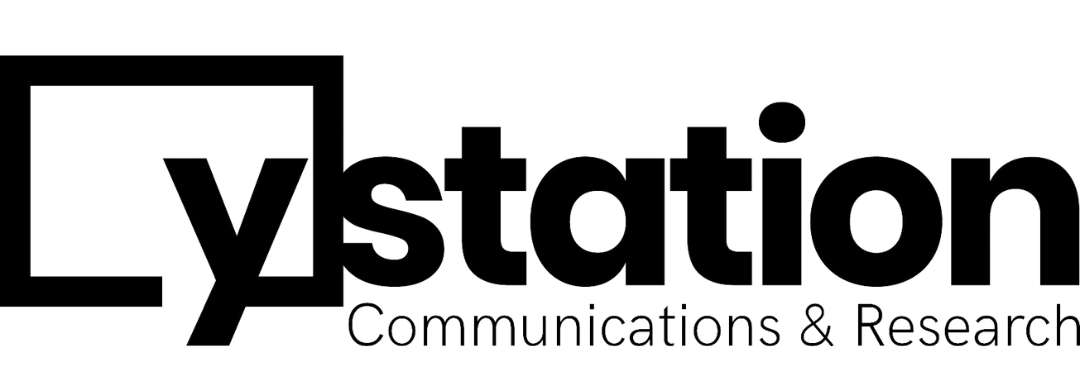Tuning in to Y Station: Episode VII
Chosen by Chris Henderson, Chief Strategist
Podcast: “Decoder Ring” by Slate
While on a recent extended road trip, I listened to Decoder Ring, a podcast that dissects cultural mysteries and the forces behind them. Tackling everything from the "Tootsie Shot" you've seen in films, to why Cabbage Patch Dolls caused such a stir, to what cancel culture looked like in the 1860's, the show breaks it all down.
Also of interest is the overall structure of the show. Willa Paskin does an incredible job of pulling in the listener and explaining tough material, all while keeping a critical thinking hat on. I'd HIGHLY recommend it.
Chosen by Jenny Black, Brand and Content Strategist
Article: “Yale researchers say social media’s outrage machine has the biggest influence on moderate groups” by Connie Lin
While an important part of my role is being present across social media, I have always had a love-hate relationship with Twitter. Every time I scroll, I inevitably end up feeling like I’ve walked in on a friend having an argument with their partner—you know that you shouldn’t engage but you feel both too awkward and morbidly fascinated to leave.
Lately (and rightfully so), the moral outrage on Twitter is spreading and a new study out of Yale University suggests that the reason our feeds are constantly full of “scathing political diatribes and lengthy personal commentary” is because we’ve been subtly trained to share that type of content. This article digs into the details and considers the pros and cons of this stream of behaviour online.
Chosen by Ann Gordon-Tighe, Strategist
Article: “Study examines a new form of crisis information exchange that has emerged during the pandemic” by Emily Henderson, B.Sc.
In 2021, our sources of information have changed a great deal from what they were twenty years ago. Just think about 9/11 - you probably heard about that via traditional media or word of mouth, but if an event like that were to take place today, chances are that you'd first hear about it on social media. This shift has researchers examining how organizations can shift their crisis communications modelling to rapid response on social media, particularly as organizations seek to stop the spread of misinformation in its tracks.
Chosen by Anthony Fisher, Junior Associate
Book: A Short History of Progress by Ronald Wright
This interesting read explores historical civilizations, why they faced ecological collapse, and the lessons these past collapses can teach modern day society. The book critically explains how civilizations often choose the short-term benefits despite the associated future costs and introduces the concept of a progress trap: a behaviour that has short-term benefit, but has substantial negative ramifications for the environment in the future.
Wright explores what progress means and how, unlike past civilizations, if we reach our ecological limits there is no starting over due to the enormity of the current world population. Since being published in 2004, it does make the reader question whether Wright’s plea to make decisions within environmental limits has gone unanswered and if it is already too late to avoid collapse.
Chosen by Cameron Dykstra, Senior Research Associate
Report: Belonging: Stories of the Dignity and Resilience of Immigrants
This is a really wonderful project about the state of immigration and settlement in Edmonton. The report uses storytelling to communicate the challenges that immigrants face in our city, along with the strengths that newcomers bring. Most importantly, it highlights the opportunities for change and the actions we can take to fully embrace newcomers into our community.
If you’re interested in immigration or in using storytelling in policy discussions and communications, there is a lot to learn from this report.
Chosen by Jillian Nason, Director of Client Services
Video: “All That We Share” by TV 2 Denmark
I was recently introduced to this marketing campaign video by TV 2 Denmark and while it originally aired a few years ago, I was struck by how smart and poignant it is. Reflecting on how there is more that brings us together than meets the eye, the video’s message is particularly relevant today and will resonate with all of us.
Chosen by Tracy With, COO
Podcast: “The Improvement Association” by The New York Times
Given the two impending elections and a third provincial election that may be called any day now, this podcast seems particularly relevant.
The five-part series focuses on the true story of election fraud scandal in rural Bladen County, North Carolina in 2018. Reporter Zoe Chace investigates accusations of a Black advocacy group, the Bladen County Improvement Association, bullying voters, tampering with ballots and stealing votes outright. It’s certainly worth a listen!







